WORKSHOP “FROM CLIMATE MODELLING TO RIVER FLOW: HIGH-RESOLUTION SCENARIOUS AND HYDROLOGY IN THE CONTEXT OF CLIMATE CHANGE IN CENTRAL ASIA”
On October 24-26, 2023, SIC ICWS and the Potsdam Institute for Climate Impact Research (PIK) held a workshop in Tashkent.
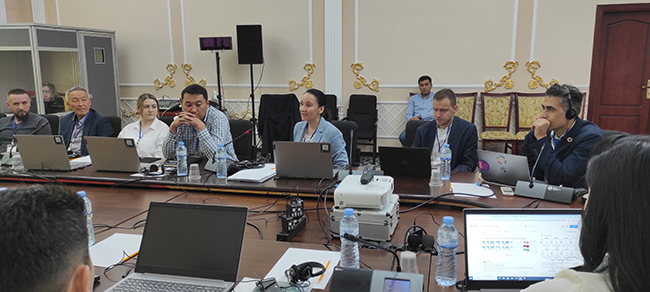
The workshop had a special focus on climate scenarios for Central Asia based on high-resolution models. Such scenarios allow for detailed and localized forecasts of climate change impacts and are therefore important for better understanding and interpreting the complexities of climate change in the region and developing effective adaptation and mitigation strategies.
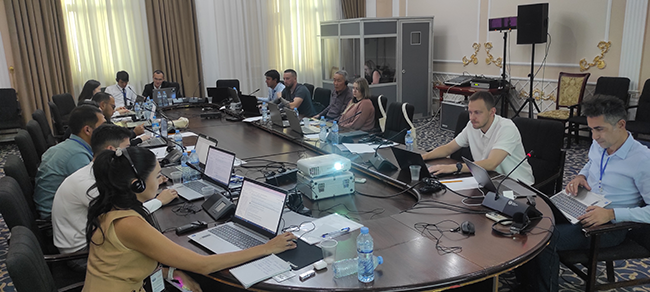
The objectives of the workshop were the following:
- supporting national hydrometeorological centers and research institutions through workshops and a series of consultations on climate and hydrological modelling.
- offering jointly the updated open high-resolution climate projections for Central Asia.
- sharing best practices in assessing climate impacts on water resources.
Representatives from Hydromet services, scientists and practitioners working in the area of climate change from Uzbekistan, Tajikistan, Kazakhstan, Kyrgyzstan and Turkmenistan took part in the workshop.
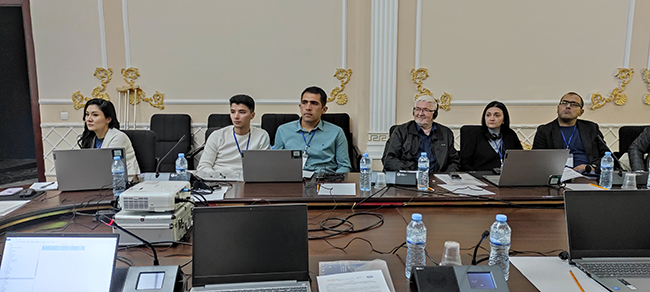
The partnership initiative of PIK and SIC ICWC aims to initiate a dialogue to improve knowledge and interpretation of climate data in Central Asia in order to successfully address urgent climate challenges.
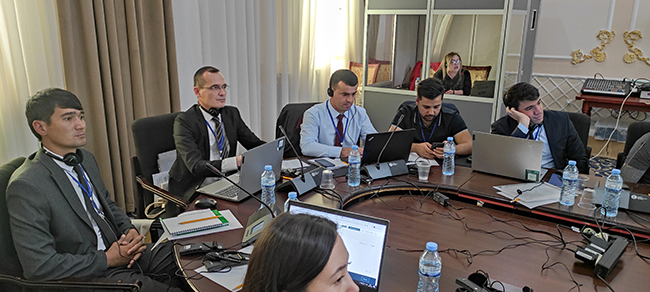
Ikrom Ergashev, SIC ICWC reported on the work done on modeling of the Vash River flow. The general scheme of modeling o all processes and calculation results were presented. Mr. Ergashev showed the flow distribution by year and the hydrographs of the Vakhsh and Zerafshan Rivers.
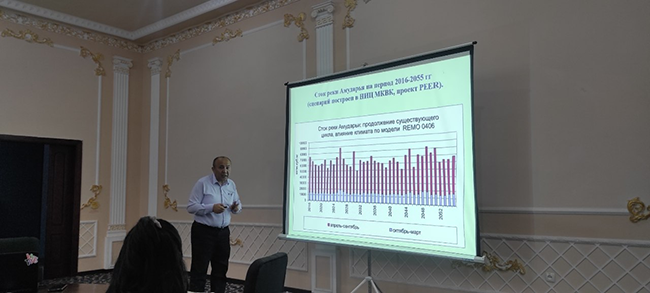
Lola Sychugovŕ, SIC ICWC made presentation on the “Assessment of the current status of the Zerafshan and Vakhsh River basins based on satellite imagery”.
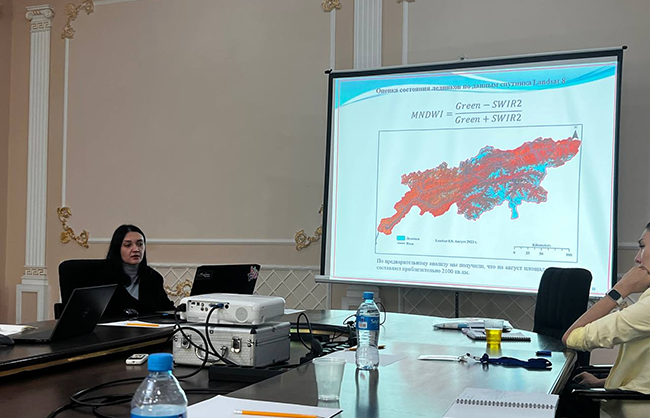
The purpose of the study was to assess the current status of glaciers using Landsat satellite data (August 2023) and snow cover data by “MODSNOW” (2023).
The assessment of glaciers was based on the modified water index (MNDWI). Preliminary analysis showed that in August the glacier area in the Zerafshan River basin was approximately 504 km2, which corresponds to some estimates on 30-35% reduction of glacier volume. In the Vakhsh River basin, the area of glaciers was about 2,100 km2 in August.
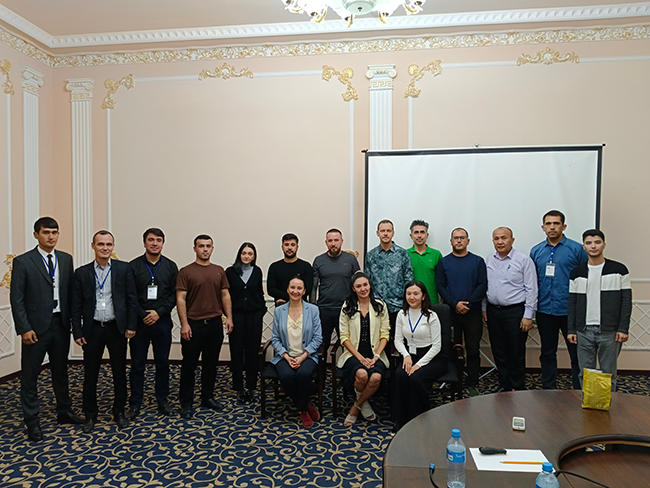
|